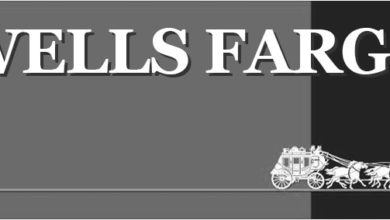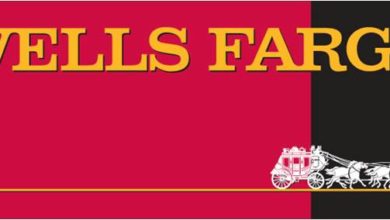Ocwen Mortgage Loan Investigation
Ocwen May Be Reporting Falsely to Credit Agencies Like Transunion and Equifax

Ocwen Financial Corp. is a finance service which services real estate loans and they are suspected of falsely making reports to credit agencies TransUnion, Experian and Equifax. This has caused people to have lower credit scores and damages from false reports on their credit report. If Ocwen falsely or inaccurately reported your payment information to any credit agency, please contact us. Fill out the form on this page or call us at 424-245-5505
The Florida Attorney General has sued Ocwen and the case is still pending. You can see the complaint in the lawsuit here: Ocwen Filed Complaint
Federal residential lending laws such as Fair Credit Reporting Act, Truth in Lending Act, the Real Estate Settlement Procedures Act, the Dodd-Frank Act, and Consumer Financial Protection Bureau Rules may have been violated. By committing unfair mortgage practices, Ocwen Mortgage Corp. may be violating the law. If you have a mortgage serviced by Ocwen, you may be entitled to damages for their practices. Please contact us by using the form on this page or call us at 424-245-5505. By completing our confidential inquiry, you will be assisting us in the investigation of this lender.
Background of Ocwen Financial
Ocwen is one of the nation’s largest loan servicers and has been sued in court for many illegal practices. There is a current investigation of their credit reporting practices.
Ocwen’s customers have reported numerous unfair mortgage practices, including:
- Borrowers have been charged unfair fees when their mortgage payments are late. Ocwen allegedly works together with third-party vendors to tack on unauthorized and unnecessary charges as part of the services related to defaulted loans. Ocwen may order multiple, unnecessary property inspections. The fees may be vaguely labeled and borrowers may not be able to determine the true nature of the fees.
- Mishandling and miscalculating borrowers’ escrow accounts, including applying force-placed insurance (click here to learn more about force-placed insurance) to properties where the borrower still has his own insurance in force. This has led borrowers to pay escrow charges for taxes and insurance above the amounts that were actually due.
- Refusing to accept late payments and forcing borrowers to apply for loan modification agreements that are then never approved. Ocwen has also been accused of accepting payment arrangements to cover late payments and then reporting all subsequent on-time payments, made under the revised arrangement, as late payments to credit bureaus.
- Mis-applying regular payments as principal pay-down and then reporting the payments as late.
Ocwen Mortgage is a provider of mortgage services, operating across the United States.
The Fair Credit Reporting Act, Truth in Lending Act, Real Estate Settlement Procedures Act, the Dodd-Frank Act, and Consumer Financial Protection Bureau.
The Fair Credit Reporting Act (FCRA) is available to view and research here: FTC WEBSITE LINK TO FCRA
The FTC website states,
“The Fair Credit Reporting Act (FCRA) is designed to protect the privacy of consumer report information — sometimes informally called “credit reports” — and to guarantee that information supplied by consumer reporting agencies (CRAs) is as accurate as possible.
If you report information about consumers to a CRA — like a credit bureau, tenant screening company, check verification service, or a medical information service — you have legal obligations under the FCRA’s Furnisher Rule. Your responsibilities include:
- furnishing information that is accurate and complete, and
- investigating consumer disputes about the accuracy of information you provide.
The Federal Trade Commission, the Consumer Financial Protection Bureau, and the federal banking agencies have each published a Furnisher Rule. The rules are identical in substance. The FTC’s Rule is summarized here. If you are not subject to the FTC’s jurisdiction, contact your regulator about your obligations.”
ACCURACY
When you provide information to a CRA, you have obligations under the FCRA to ensure the accuracy of the information you furnish. As a rule, it’s illegal to report information that you know or believe is inaccurate. You have “reasonable cause to believe” that information is inaccurate if you have knowledge, other than allegations from the consumer, that would lead a reasonable person to doubt the accuracy of the information. FCRA Section 623(a)(1)(A) You may be exempt from this requirement if you give an address for consumers to report inaccurate information, but you cannot, under any circumstances, report information the consumer has told you is inaccurate if it is, in fact, inaccurate. FCRA Section 623(a)(1)(C)”
The Truth in Lending Act regulates the fees that may be charged when a borrower defaults on his mortgage. If the lender or servicer charges fee and costs in excessive or incorrect amounts, this will unfairly increase the total balance the borrower owes on his loan. Borrowers may be entitled to actual and additional damages for the lender’s wrongdoing under the Truth in Lending Act.
The Real Estate Settlement Procedures Act requires mortgage servicers to follow established escrow accounting procedures and requires timely responses to customers’ inquiries. Borrowers may be entitled to actual damages plus an additional $2,000 where there is a pattern of repeated violations.
The Consumer Financial Protection Bureau, which was created under the Dodd-Frank Act, regulates when and how a mortgage company may purchase insurance on a borrower’s behalf (known as force-placed insurance – see more information here). Usually, a borrower must be given adequate notice and allowed an opportunity to prove he has adequate insurance before a mortgage company may purchase the force-placed insurance.
By enacting these laws, Congress intended to provide borrowers with protections against unfair mortgage practices. Borrowers have recourse under these laws to recover damages caused by the unfair practices of mortgage companies.
Potential Class Action
We are investigating potential Ocwen lawsuit claims on behalf of borrowers who have mortgages services by Ocwen.
Borrowers with mortgages held by Ocwen may have a claim against Ocwenfor their unfair practices. Federal laws and regulations require lenders to use fair practices with mortgage services. Regulations to protect borrowers govern default fees, escrow account practices, and force-placed insurance. Borrowers may be entitled to actual and additional damages when mortgage companies violate these regulations.
If you have a mortgage with Ocwen and have experienced unfair mortgage practices by Ocwen, please contact us immediately for a free case evaluation either by submitting our confidential form on this page, or by calling us at 424-245-5505.
________________________
Attorney Advertising
Past results are not an indication of future outcome.





